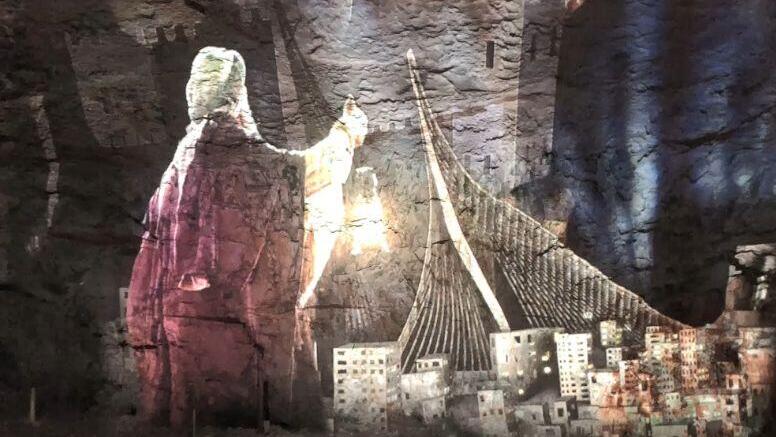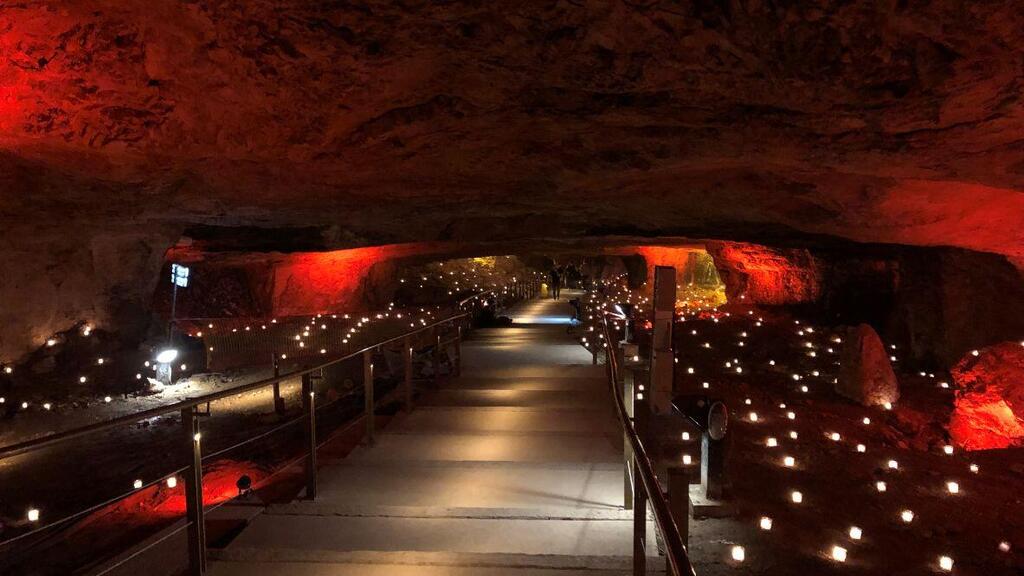Getting your Trinity Audio player ready...
Immersive audio-visual journey at Zedekiah's Cave in Jerusalem
(East Jerusalem Development Company LTD)
Zedekiah's Cave, an underground quarry under the Muslim Quarter of the Old City of Jerusalem that runs the length of five city blocks, will reopen next week after being closed for renovations for the past three years.
More stories:
Visitors to the cave will be able to embark on a unique immersive audio-visual experience, conducted as a guided tour with various stations along its darkened walls.
9 View gallery
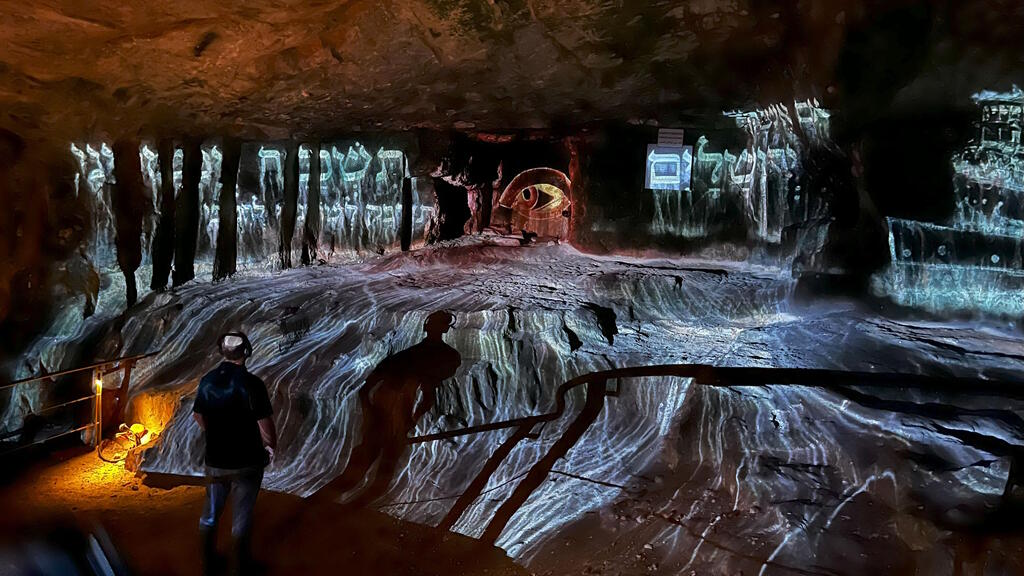

"Secrets under the walls" vision in the Zedekiah's Cave
(Photo: East Jerusalem Development Company LTD)
9 View gallery
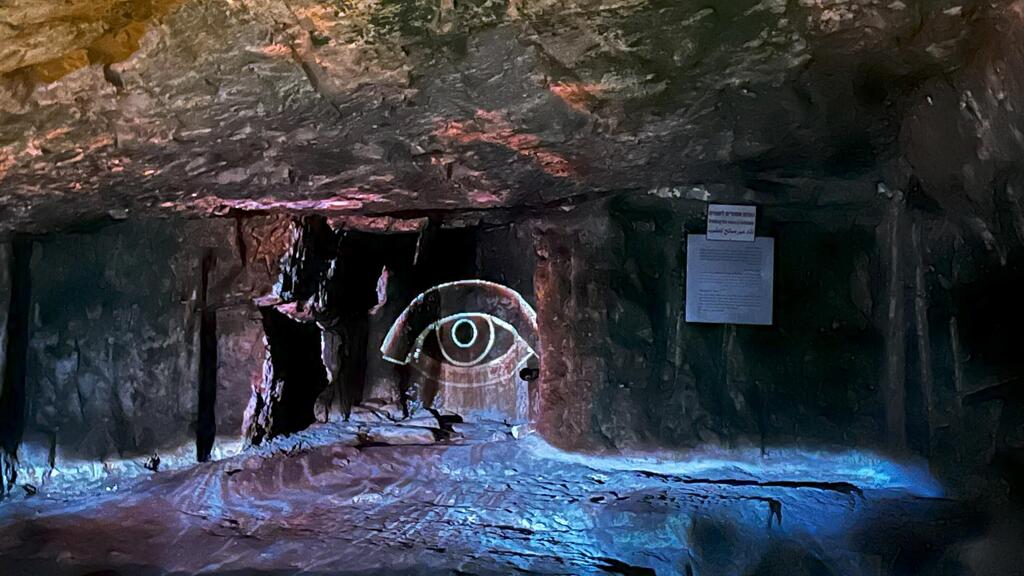

Zedekiah's Cave now provides an immersive audio-visual experience
(Photo: East Jerusalem Development Company LTD)
9 View gallery
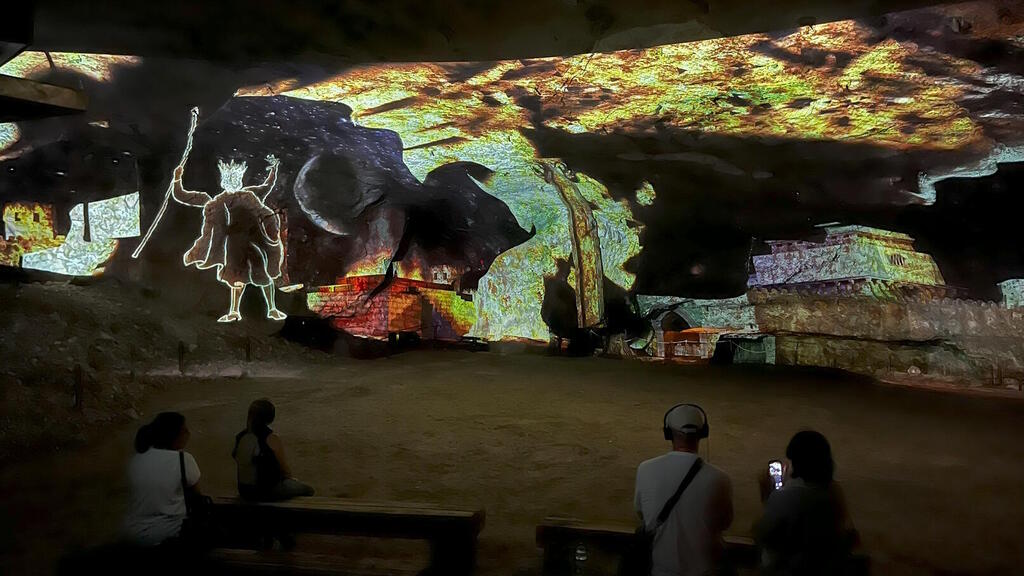

Zedekiah's Cave is located under the Muslim Quarter of the Old City of Jerusalem
(Photo: East Jerusalem Development Company LTD)
The massive cave, covering approximately 9,000 square meters, is entirely carved into the hard limestone rock. Though it was initially a small natural cave, the builders of ancient Jerusalem discovered that the preferred stone for construction, known as "melekeh," could be found here. Consequently, the cave was gradually carved out and expanded, and used throughout thousands of years – during the First Temple period, the Second Temple period under Herod the Great, and even in 1907, when a small tower with a clock was built above Jaffa Gate.
Numerous traditions are associated with the cave and, according to one well-known account, King Zedekiah, the last ruler of the Kingdom of Judah, attempted to escape through the cave to the other side of the Jordan River after the Babylonian army infiltrated Jerusalem and destroyed the Temple. However, he was captured in the plains of Jericho, as described in the Book of Jeremiah. According to speculation, the cave did indeed lead to the Temple Mount in the past but over the years it became blocked by layers of rocks.
In the 16th century, during the reign of the Ottoman Sultan Suleiman the Magnificent, who built the current walls of Jerusalem, he ordered the entrance to the cave to be sealed, fearing that the enemy might use it to infiltrate the city. Thus, the cave was completely forgotten for over 300 years until it was accidentally rediscovered in the winter of 1854 by biblical scholar James Turner Barclay –or to be more precise, by his dog, who disappeared during a trip to the area near Damascus (Shechem) Gate and was found to have slipped into the entrance of a cave hidden by a large pile of debris that had been uncovered due to heavy rains that year.
9 View gallery
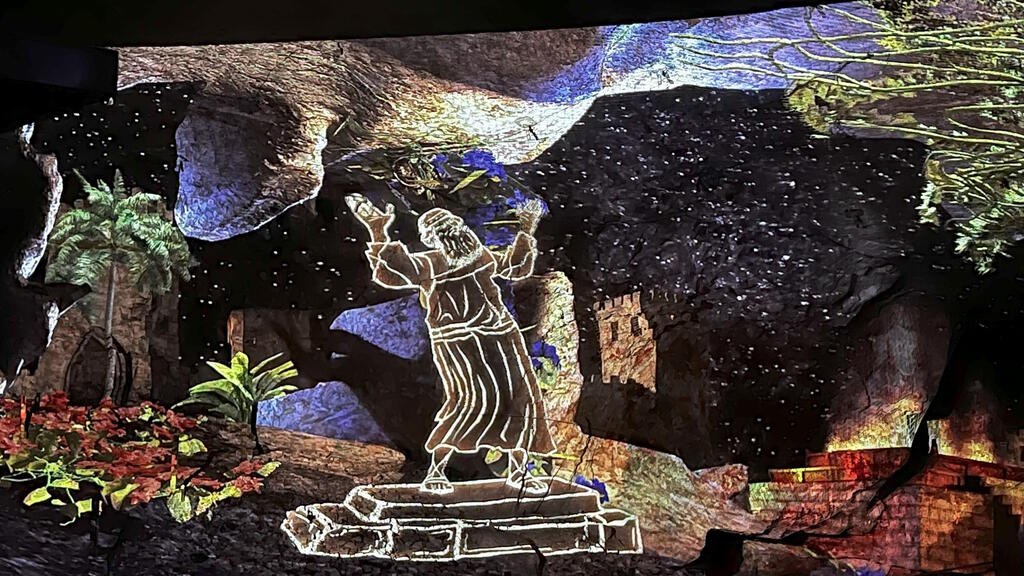

The new presentation inside Zedekiah's Cave
(Photo: East Jerusalem Development Company LTD)
9 View gallery
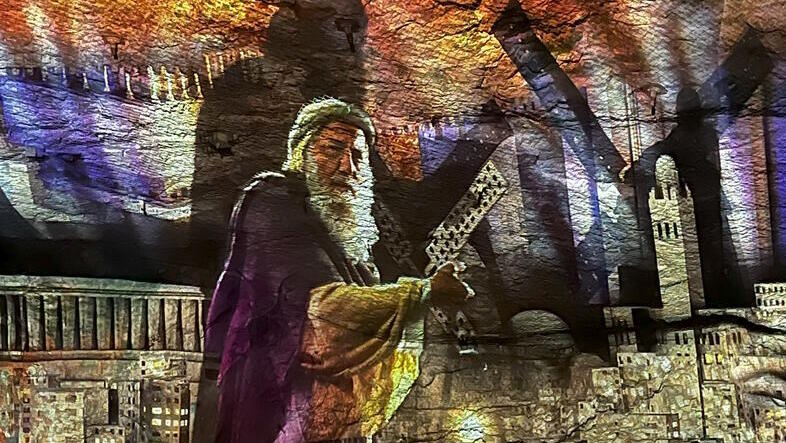

The king seen in the new audio-visual presentation inside Zedekiah's Cave
(Photo: East Jerusalem Development Company LTD)
In recent years, the unique cave has served as a venue for musical performances, accommodating around 500 people, and as a site for tours. Inside the fascinating cave, graffiti inscriptions from centuries ago can be found, as well as a flowing spring known as the "Tears of Zedekiah," whose water's source and destination remain unknown.
From King Solomon, through the Babylonian exile, all the way to modern-day Israel
The new audio-visual experience, titled "Secrets Beneath the Walls," is an interactive performance that involves the visitors, taking them on a tour deep into the cave and back to the ancient world of the First Temple period when Assyria and Babylon were leading and influential powers, as well as to the legends and myths of the Second Temple period.
During the immersive tour, visitors will encounter the mythological cherub from the Ark of the Covenant, the legendary "Solomon's shamir" used to carve the stones of the First Temple erected by King Solomon, the mysterious spring that flows within the cave, and the members of the "Freemasonry" who conducted secret ceremonies in the cave and believed that the "Foundation Stone" was carved from there. Visitors will join the journey of Zedekiah and the Jewish people into the Babylonian exile and conclude the tour with the modern construction of Israel after 2,000 years of exile.
9 View gallery
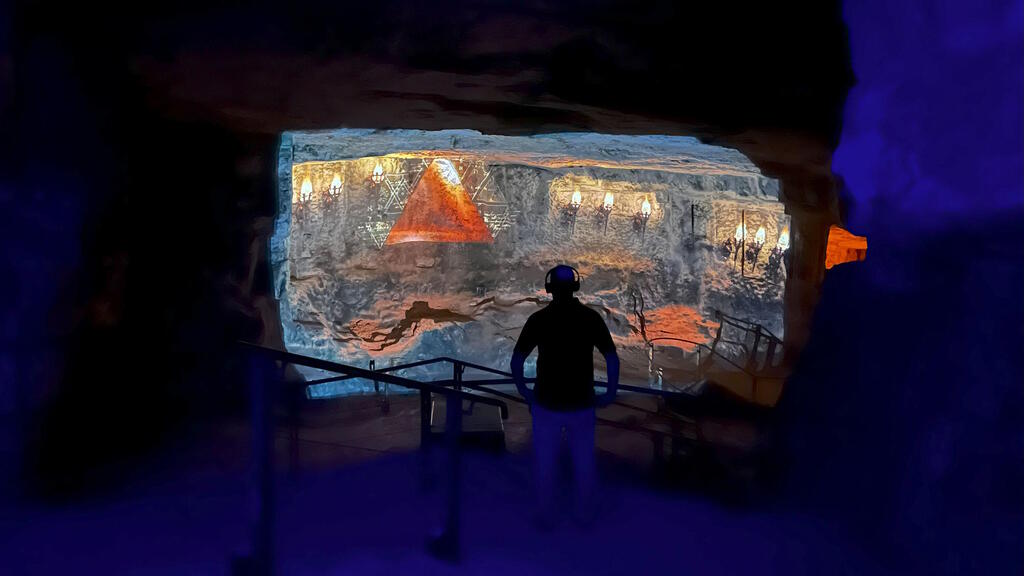

Zedekiah's Cave new audio-visual experience, titled "Secrets Beneath the Walls," is an interactive performance that involves the visitors
(Photo: East Jerusalem Development Company LTD)
9 View gallery
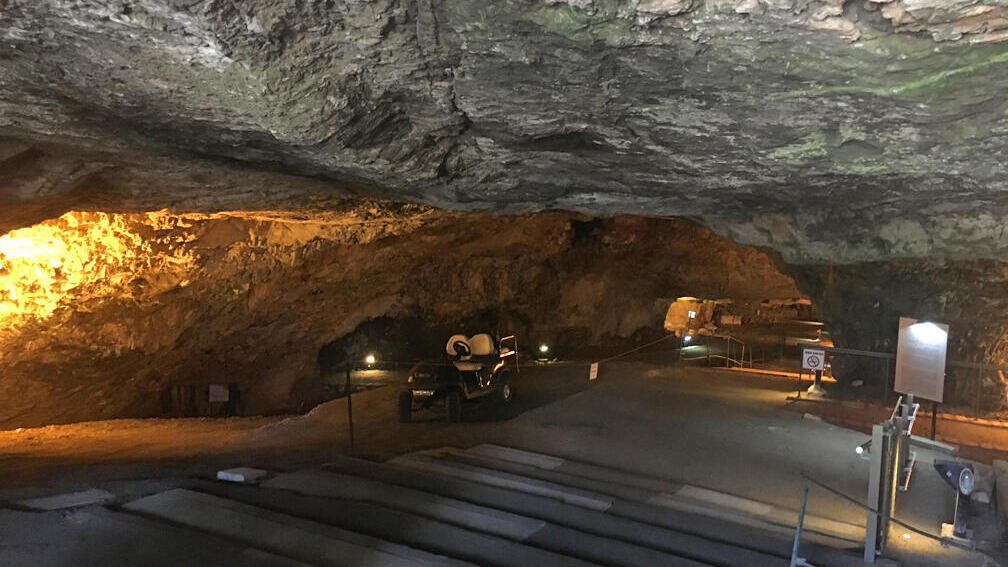

the tour of Zedekiah's Cave concludes with the modern construction of Israel after 2,000 years of exile.
(Photo: Gilad Carmeli)
The renovations of the cave, which included significant infrastructural upgrades and enhancements, were funded by the Jerusalem Municipality and East Jerusalem Development Company LTD.
"This site is the cornerstone of Jerusalem, where our story begins," said Minister of Jerusalem Affairs and Jewish Heritage Meir Porush. "I see immense importance in every child visiting here during the years of learning about their history."
The cave will be open to the general public starting from August 1, 2023, on Sundays through Thursdays and Saturdays (closed on Fridays). The immersive experience will take place for individual visitors on Sundays through Thursdays at 9:00-10:00 and 14:00-15:00, and self-guided tours without the immersive experience will be available from 15:00-17:00. On Saturdays, the cave will be open for self-guided tours (without the immersive experience) from 9:00-17:00.
Admission to the cave costs 35 shekels for adults and 25 shekels for children for a guided tour with the immersive experience, or 25 shekels for adults and 12 shekels for children for a self-guided tour without the immersive experience. Tickets should be purchased in advance through the East Jerusalem Development LTD. website or by phone at 02-6277550.





